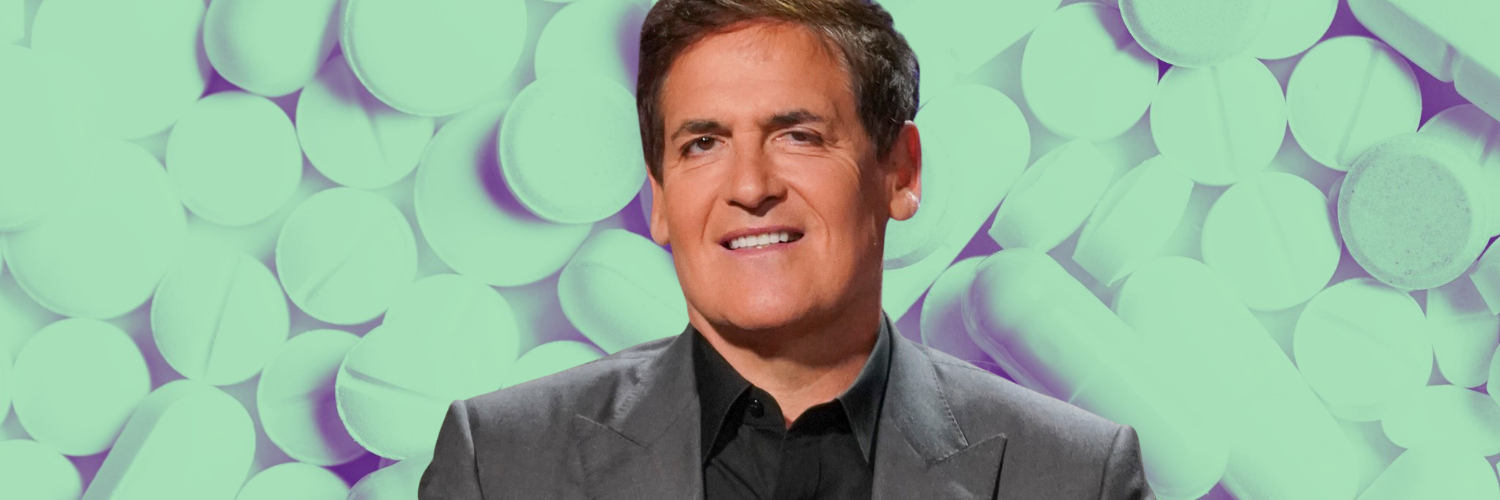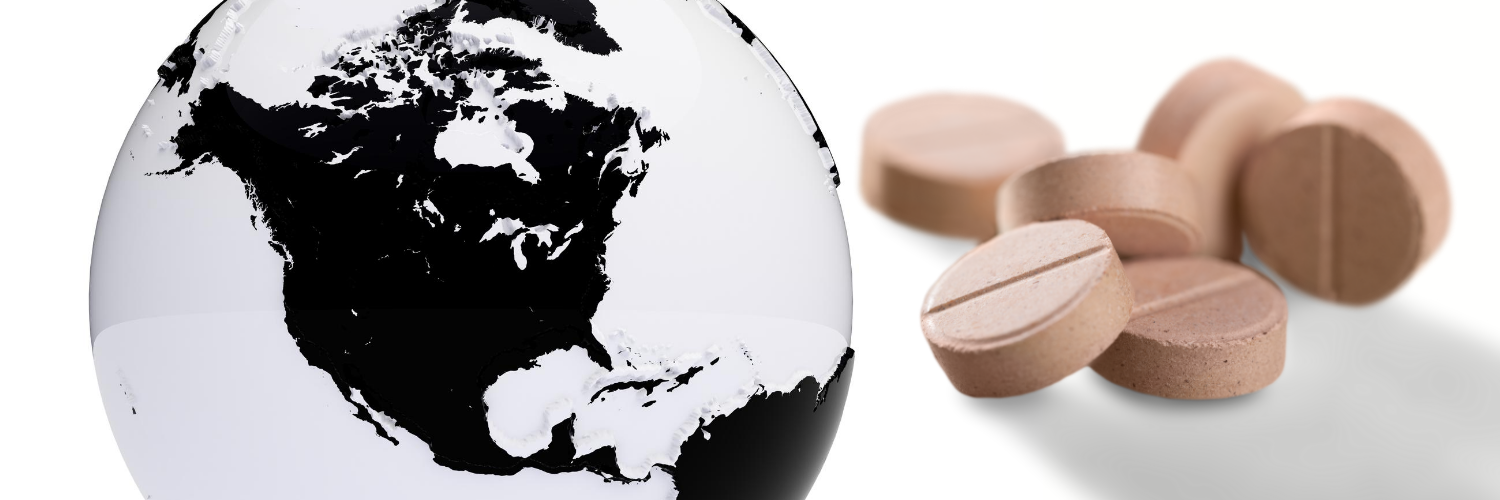Mark Cuban Cost Plus Drug Company Frequently Asked Questions

Gabe Levitt, co-founder and president of PharmacyChecker.com, answers your most frequently asked questions regarding the highly publicized new Mark Cuban Cost Plus Drug Company.
What are your thoughts on Mark Cuban Cost Plus Drug Company?
First off, it’s great that Mark Cuban is bringing more attention to the crisis of high drug prices in America. In fact, he sounds like a social activist. For that I want to turn your attention to a letter from Mark Cuban on the company’s website:
We started Mark Cuban Cost Plus Drug Company because every American should have access to safe, affordable medicines…No American should have to suffer or worse - because they can’t afford basic prescription medications.”
That’s our mission at PharmacyChecker, too!
Does Cost Plus only cover generics? Are there plans to cover brand drugs in the future?
My main takeaway about Mark Cuban’s drug company is that it won’t do anything about the high cost of patented brand name drugs - but it could shake up the generic drug price market in a positive way, which I think is great.
This venture is dedicated to making much more affordable generic drugs. At this time, the company does not address patented, brand name drugs, which are usually the most expensive products on the market. I don’t know of future plans in the brand name drug market. Generics are already viewed as a bargain. Here’s the thing: that’s often not true. There are far too many expensive generic drugs, and drug companies play games to exploit drug regulations that allow them to corner a market on off-patent drugs. Thus, even though Cuban’s new venture doesn’t take on brand name drugs, if its mission is successful, generic drugs, which account for 90% of prescriptions filled, will be cheaper!
Who is Dr. Alex Oshmyansky?
Mark Cuban’s new drug company is really the brainchild of Dr. Alex Oshmyansky, a radiologist. According to Oshmyansky, as a doctor, he had experience with patients who died because they could not afford certain off-patent prescription drugs. Additionally, he was deeply bothered by the greed of Martin Shkreli, the “Pharma Bro” who famously increased the price of a life-saving drug from $13.50 to $750 per pill overnight. Note that Oshmyansky also has a PhD in mathematics, so this is one smart dude.
He decided to start a nonprofit drug company that manufactured drugs and sold them at prices people could actually afford. He realized, correctly, that pharmacy benefit managers were often the middlemen of the drug supply chain that served to push up prices when their stated purpose was to negotiate them down. After trying to raise money for the nonprofit, Dr. Oshmyansky realized that a lot more capital would be needed to make his ideas work. That led to his decision to make the venture private so he could raise more money. Eventually, he sent Mark Cuban a cold email with his ideas and it worked! Cuban apparently liked what he was hearing. What was once called Osh Affordable Pharmaceuticals is now the Mark Cuban Cost Plus Drug Company.
What is the Mark Cuban Cost Plus Drug Company?
Today, the company is a public benefit corporation, which must have public interest goals incorporated into its business plan. Mark Cuban’s celebrity is being used to market two central ideas for drug affordability:
The company launched an online pharmacy called Cost Plus Drugs. There, the company sells generic prescription drugs directly to patients at low prices generally not available anywhere else. What’s less talked about is that the online pharmacy is “powered by” a company called True Pill. It seems that True PIll is the actual pharmacy service provider.
Cost Plus is actually offering great prices on some generic drugs, including imatinib, a cancer medication, and albendazole, which treats infections caused by tapeworms.
Before launching its online pharmacy, the company launched its own PBM. Here’s the twist: the message of the Cost Plus PBM is: “We hate PBMs: So we made a better one. Meet the Mark Cuban Cost Plus PBM.” How will that work? The company refers to its PBM as a patient benefit manager - not PHARMACY benefit manager - to show that they are working for the patient, not the pharmacy. The message is that patient benefit managers will provide transparency and, unlike traditional PBMs, will genuinely fight to bring down drug prices.
The company also has its own pharmacy wholesaler. This may explain how they are keeping prices so low themselves but also working with TruePill to power their retail pharmacy experience. In a radio interview with Oshmyansky, he said they are private labeling generic drugs made by other companies. Those private labeled drugs have their own NDC (national drug code) numbers and operate outside the insurance market. These drugs are probably made in India and imported to their wholesaler and then distributed retail through online orders powered by TruePill.
The vertical integration will culminate with the creation of a drug manufacturing facility in Texas. I wish them luck!
What is TruePill?
According to Cost Plus Drugs, TruePill “powers” the online pharmacy. TruePill seems to be a middleman, which goes against the grain of what Cost Plus Drugs is shooting for. TruePill is a provider of mail order pharmacy, telehealth, and health diagnostic services. Quite impressive actually. It provides white-label opportunities for companies seeking to attach their brand names to such services.
Which patients will this online pharmacy help?
Any patients seeking lower prices on generic drugs and mail order pharmacy services when paying out-of-pocket, meaning not through their health insurer’s pharmacy benefit managers. I’ve seen low prices on Cost Plus Drugs for medications that prevent strokes and treat cancer, depression, diabetes, GERD, high blood pressure, hyperlipidemia, prostate issues, etc.
Keep in mind, the online pharmacy is not taking insurance. Obviously, the lower prices can be most helpful to Americans who unfortunately do not have health insurance – just under 30 million people.
But the prices are so low in some cases that people with insurance paying out of pocket will still save money, usually in the range of $10-$20 but sometimes much more, depending on the co-payment and drug.
Here’s an example. Let’s say you take generic Zoloft, called sertraline, for moderate depression. Your prescription is for one 50mg tablet per day. Your co-payment with insurance is $10/month for 30 pills, which doesn’t seem so bad. However, you can buy 90 50mg pills of sertraline from cost plus drugs for $5.70. So in that case you’re saving almost $25 every three months or $100 bucks a year.
The savings can potentially be life saving. Let’s say you’re being treated for leukemia, a type of cancer. You lost your job and insurance recently. To stay alive, you must take imatinib, which is generic Gleevec. The average retail price is over $10,000 for the generic version. With a GoodRx coupon, the price goes down to about $120. Mark Cuban’s online pharmacy is selling 30 pills of 400mg imatinib for just over $17. That’s even cheaper than buying imatinib online from a foreign pharmacy.
Why are Mark Cuban’s drugs so much cheaper?
Now, let’s take a step back. Many generic drugs are already affordable. Generic drugs are often cheaper in the U.S. than in Canada, and sometimes even India. PharmacyChecker publishes a free U.S. pharmacy discount card that can often help save 80% on popular generic drugs, especially for the uninsured. GoodRx also offers great savings on many generic drugs.
Still, generic drugs could be even cheaper! As I understand it, Cost Plus Drugs is a public benefit corporation. So, they are a private, for-profit company but they must generate social and public good in their business operations. Included in that mission is the transparency of limiting their profit to 15% of a sale plus a $3 dispensing fee for the pharmacist. This is one way they are dedicated to lowering drug prices.
That’s a very difficult model to sustain. If you’re selling a month's supply of a drug for $4 and the dispensing fee is $3, plus overhead, then you’re losing money. Yet there’s one way to do it.
Many prescription drugs are manufactured at very low cost. Where a pill can be a penny. The problem is that each company wants a cut of the sale: from the manufacturer to the wholesaler, from the pharmacy, and to the pharmacy benefit manager - even to the discount card providers like GoodRx and PharmacyChecker! To get rid of the middlemen, Mark Cuban’s pharmacy venture seeks to vertically integrate all of these layers in one company.
The Mark Cuban Cost Plus Drug company already has a wholesale pharmacy; a pharmacy benefit manager (referred to as a patient benefit manager); a retail pharmacy service provider called TruePill, and they are building a drug manufacturing facility in the United States.
Will Mark Cuban’s Drug Company lower the cost of drugs overall in the United States?
It could work for generic drugs. But the only way this works is if they can create huge volumes of prescription drug sales. Amazon Pharmacy is already trying this, and they have a great advantage with an astronomically large consumer base. But Amazon pharmacy’s prices aren’t that great!
With hundreds of millions of dollars in start-up costs, vertical integration combined with the profit-limiting behavior associated with being a public benefit corporation, the Mark Cuban pharmacy venture could certainly infuse systemic competition and lower generic drug prices.
How does all of this square with prescription drug importation?
I’m waiting for one of these billionaires to get behind safe prescription drug importation of lower cost brand name drugs to finally realize its potential to bring down drug prices in America.
Even better, to really end the crisis of high drug prices, we need to pass legislation so that the federal government can effectively negotiate drug prices with big pharma companies – as they do in almost every other rich country in the world.
I’m still rooting for Mark Cuban in the meantime!




